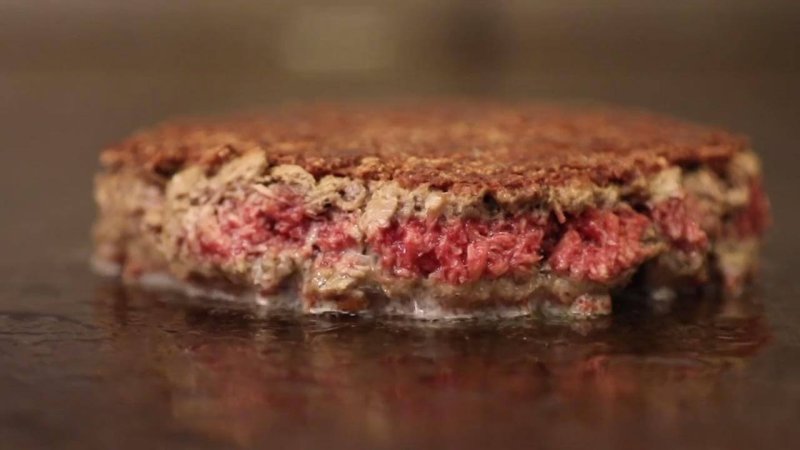Triton Algae Innovations – a San Diego-based firm building a production platform for food proteins from algae – says it can produce heme (the red, meaty-tasting star ingredient in the Impossible Burger) without using genetic engineering, generating significant interest from plant-based meat brands seeking a Non GMO positioning.
Impossible Foods currently produces heme (an iron-containing molecule that makes meat taste like meat for its plant-based meats via a genetically engineered yeast, the DNA of which has been retooled to produce leghemoglobin (a protein found in nodules attached to the roots of nitrogen-fixing plants such as soy).
While no GMOs are in the final ingredient (the yeast is removed when the heme is harvested), the end product does not qualify for the coveted Non-GMO Project Verified stamp.
Triton, by contrast, uses UV light to stimulate its green algae strain Chlamydomonas reinhardtii to turn red and produce heme. It then uses traditional breeding techniques to create higher yielding varieties capable of producing more heme, Miller Tran, PhD, Triton cofounder and director of R&D, told FoodNavigator-USA.
Read full, original article: Triton woos plant-based meat makers with Non GMO source of heme, the secret sauce in the Impossible Burger































